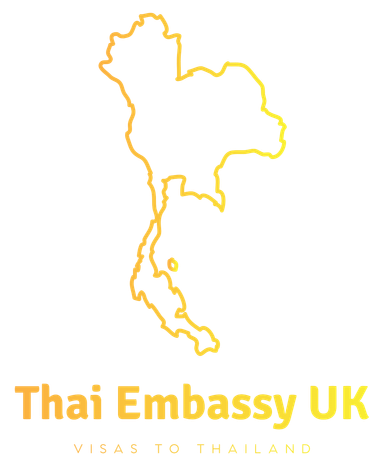
Travel & Visa News
This page contains the latest news for travellers
The newest articles are at the top of the page. Sometimes the information in the newer articles supersedes information further down the page, especially in the ever changing covid situation. Immigration requirements change on a regular basis. For the latest update contact us directly.
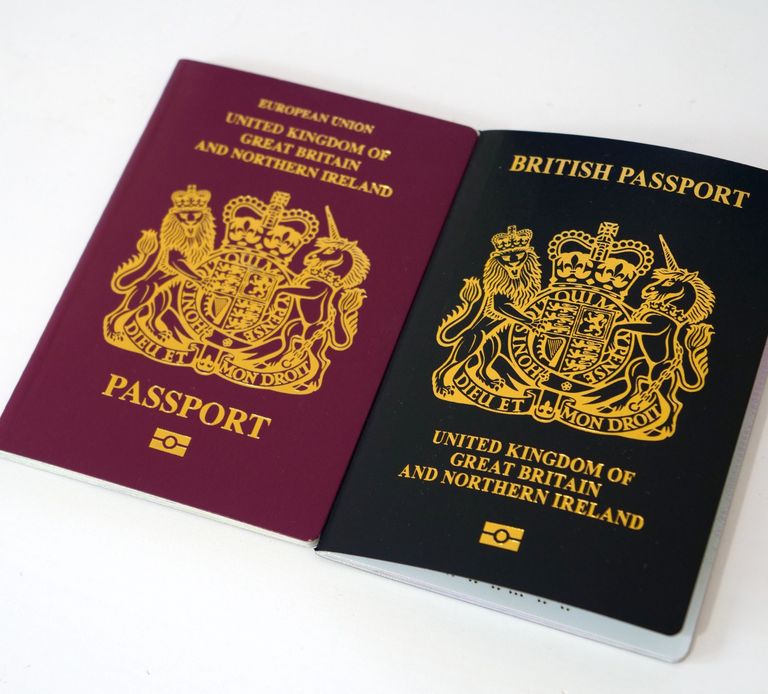
UK Passport Warning
Holidaymakers, tourists and anyone planning to visit Thailand are urged to check their passports before they set off as documents which appear in date may not be valid on arrival.
Up to 70 countries, including Thailand, require you to have six months left on your passport when you travel, meaning that even if it has not yet technically expired, you may be banned from travelling. Other countries have similar rules requiring anything from 45 days to three months remaining.
This rule is especially important if you still have a red passport, which are no longer being issued after the UK left the EU meaning many red passports are due to expire earlier than the document states. Some red passports were given an extra 6 months on top of the normal 10 years but this is not being honoured since the EU exit.
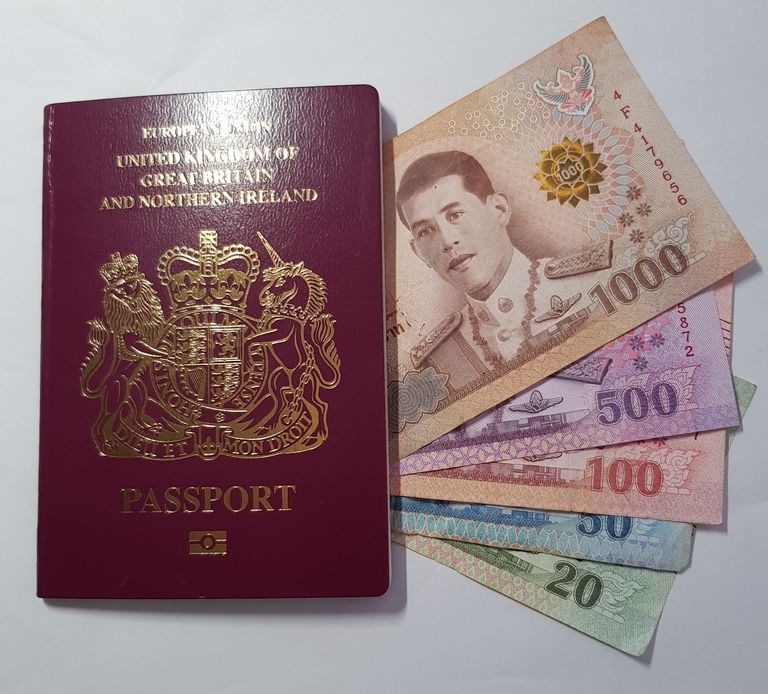
New tax on all foreign arrivals
A trip to Thailand is about to get a little more expensive. Starting June 1, 2023 the country will impose a tourism tax on international visitors, the Thai government confirmed on Tuesday.
Those who arrive by air will be taxed 300 baht (roughly US$9, which will be added into airfare) and those by land or water transportation will be charged 150 baht (US$4). The year-round tax will only apply to those staying overnight in the country, children under 2 or those traveling on diplomatic passports or work permits will be exempt.
The tax, which was proposed by the National Tourism Policy Committee and has been under consideration since before the pandemic, has been criticized by the local tourism industry, according to the Bangkok Post.
Government officials say it will help offset medical costs tourists accrue at public hospitals, which totalled between US$8 and 11 million from 2017 and 2019, the tourism and sports minister Phiphat Ratchakitprakarn told reporters on Tuesday. Despite this, tourists should not view it as free travel insurance. It will also support domestic tourism development. This year alone, the tax could generate more than US$115 million.
Beyond the upcoming tourism tax, there are no restrictions for leisure travellers to enter Thailand, other than having a passport with at least six months of validity from your arrival. Many nations citizens’ don’t need a visa for stays fewer than 30 days, (45 until March 31) but Thai immigration officials or airline staff may require proof of an onward or return ticket. All coronavirus restrictions have been lifted.
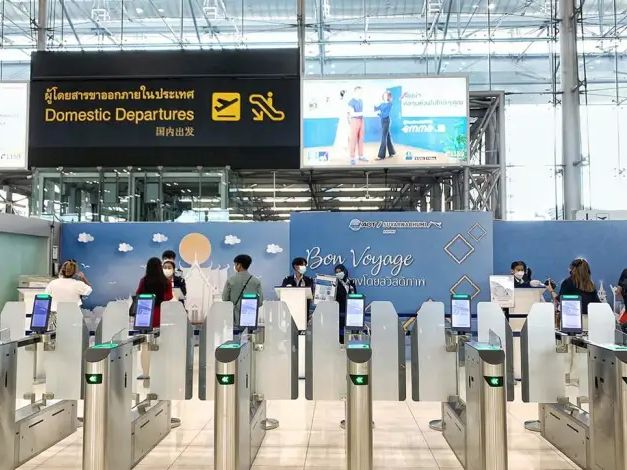
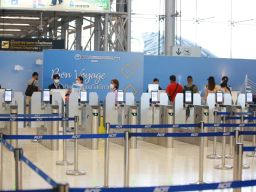
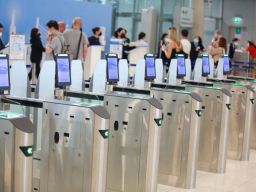
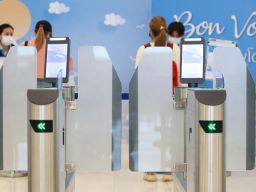
New Passenger Validation System unveiled in Bangkok
Bangkok’s Suvarnabhumi Airport has announced the activation of a new Passenger Validation System (PVS) from 1 September, 2022, as part of its overall security upgrade and service improvement.
The PVS system is an important enhancement that is being made for the safety of all passengers and staff and to better improve traffic flow through Suvarnabhumi Airport, which is the primary international gateway to Thailand and aims to position itself as one of the world’s premier airports.
From then, the PVS will be in operation at:
• The entrance to the domestic departure checkpoints behind the check-in counters at Rows C-D (a total of eight units in place);
• The entrance to the international departure passenger checkpoints at Zone 2, behind check-in counters at Rows J-K (two units), and behind check-in counters at Rows L-M (two units);
• The entrance up to the international departure passenger checkpoints at Zone 3, behind the check-in counters at Rows S-T (three units).
The PVS verifies passenger travel information to optimise the screening capability and increase safety standards. It works by having passengers place their paper or E-boarding passes onto the machine scanner which will read and check their travel information. This enables the screening of passengers with precise accuracy and prevents unauthorised persons from entering airside and restricted areas. It can also prevent boarding passes that have already gone through the system from being reused.
To facilitate passengers in using the PVS, airport staff will be on hand to provide advice and assistance where necessary.
All photos courtesy of the Airports of Thailand.
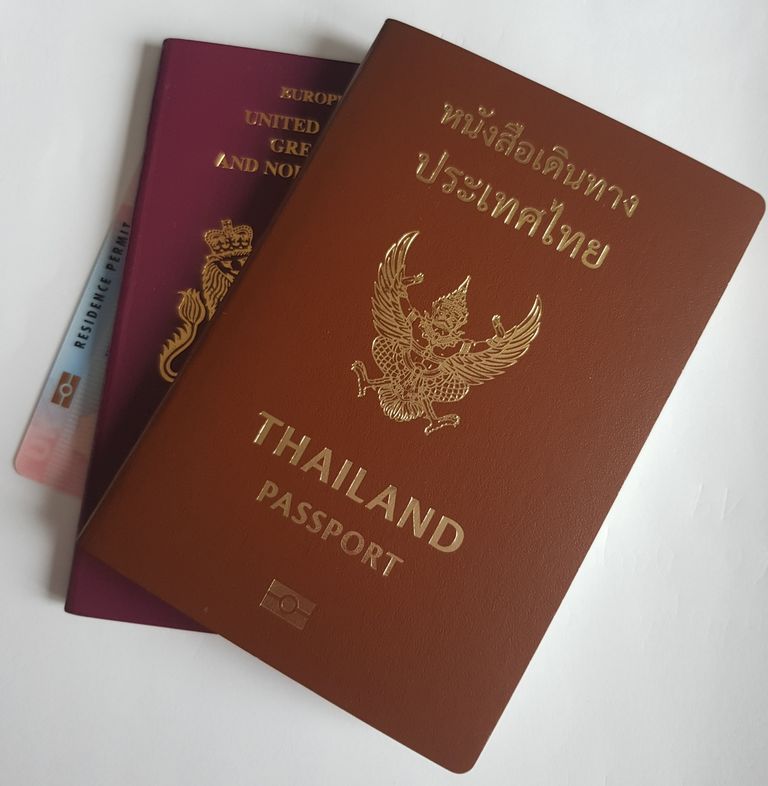
Thai Visa Express- Assistance with your visa from Thailand
Thai Visa Express Thailand is the best option for legal immigration services that are quick, secure, and professional. Thailand Visas are available for tourism, retirement, business, education, and non-immigrant purposes. Visas for the United States, the United Kingdom, Australia, Germany, and Switzerland, among others.
Thai Visa Express Thailand is your first choice for speedy, secure, and professional immigration services, with 16 years of expertise assisting countless individuals acquire their Thailand visas. Thai Visa Express offers a service to process 1-Year Non-Immigrant Visa Extensions in Thailand for ex-pats that live overseas. This visa provides the following:
• Multiple-entry travel to Thailand
• Possibility of remaining in Thailand for up to 12 months
• A non-immigrant O-Visa which is renewable on a yearly basis.
• Assistance in assuring you meet the financial requirements.
Other services include:
• Thai visa applications to the United Kingdom
• Assistance with opening a Thai bank account
• Non-immigrant visa applications
• Document Translation Service
• British Overseas Passport Applications
• Thai visa extensions are available.
• Thai marriage service
• further Thai immigration advice? then contact them today.
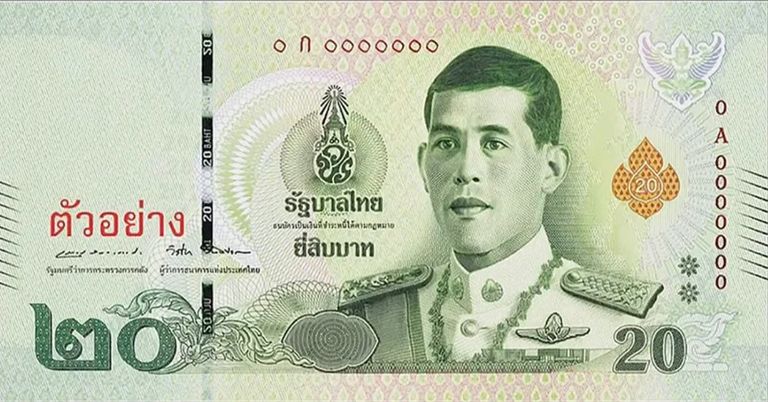
Bank of Thailand Issues new 20 Baht Polymer Banknote
New 20 Baht polymer banknotes are already in circulation however the paper banknotes will remain legal tender for the time being
The Bank of Thailand (BOT) has issued a new 20 Baht Polymer Banknote
The initiative to change from paper to polymer for 20 Baht banknotes is to improve the quality, making notes cleaner and more durable. As the 20 Baht is the most widely used denomination it is worn out and soiled quicker than other denominations, said the BOT in its statement.
The advantage of polymer over paper is that it does not absorb moisture and dirt. Therefore, polymer banknotes can last significantly longer than paper banknotes.
The durability of polymer banknotes can also reduce the need to print new notes to replace the damaged ones over the long term which of course is better for the environment.
The 20 Baht polymer banknotes keep the same theme of design and features as the current 20 Baht paper banknotes in circulation.
Advanced anti-counterfeit technologies are used to ensure that the new polymer banknotes are difficult to copy
One additional security feature is the “clear windows”, which can be seen through from both sides. The lower clear window exhibits colour-shifting from translucent yellow to red.
For the visually impaired, the added feature is the small numeric “20” embossed numbers in the upper clear window, which can be easily touched and felt.
Image: Bank of Thailand
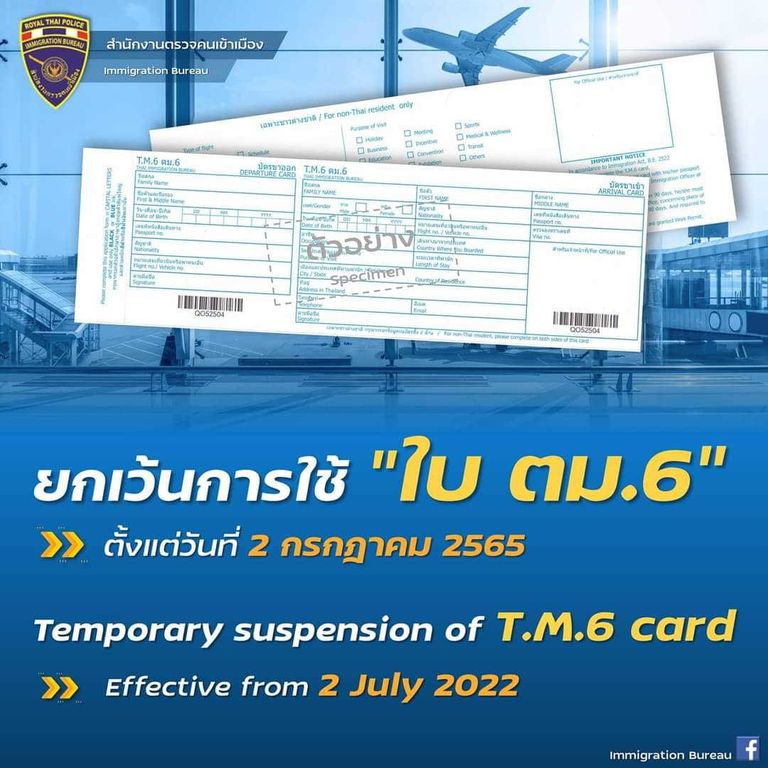
TM6 Entry Card suspended for air travellers
To ease congestion at airports the Thai Government has suspended the requirement to fill out and present the TM6 entry form, but only for those entering by air-The system remains in place for those entering by land or sea.
Deputy Government Spokeswoman Traisuree Taisaranakul stated that to relieve passenger congestion at international airports, the government would suspend the requirement for international travellers to fill out TM 6 immigration forms. She also confirmed that immigration officers will still collect data on arrivals using biometric systems at airports, and that additional travel data may also be obtained from airlines.
Prime Minister and Defence Minister Prayut Chan-o-cha added that this will streamline the procedure for international tourists, who are already required to fill out numerous documents upon arrival.
The change took effect on the 2nd July 2022 for an unspecified period.
Please note: If you are planning a long-term stay in Thailand, you are advised to still fill out the TM6 arrival form as you will need it to apply for visa extensions.
